Filter by

Frontiers in mental health and the environment
This book sheds light on the influence of the environment on people’s mental health. To what extent are exposures to green space, air pollution, natural disasters, etc. related to depression or suicide? Such questions are relevant for both scientists and policy-makers. A rich collection of chapters subsumes current research frontiers originating from disciplines such as geography, public heal…
- Edition
- -
- ISBN/ISSN
- 9783038973911
- Collation
- -
- Series Title
- -
- Call Number
- 610.734 HEL f

Nature Inc: environmental conservation in the neoliberal age
With global wildlife populations and biodiversity riches in peril, it is obvious that innovative methods of addressing our planet’s environmental problems are needed. But is “the market” the answer? Nature™ Inc. brings together cutting-edge research by respected scholars from around the world to analyze how “neoliberal conservation” is reshaping human–nature relations.
- Edition
- -
- ISBN/ISSN
- 9780816539215
- Collation
- 278 pages : illustrations ; 24 cm.
- Series Title
- Critical green engagements: investigating the green economy and its alternatives
- Call Number
- 363.7 NAT n
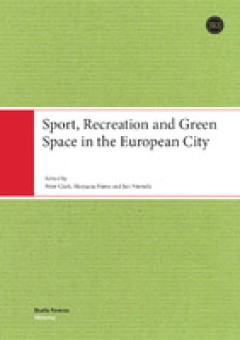
Sport, recreation and green space in the European city
Green space has become a major issue in European cities in recent years as a result of enhanced environmental awareness, urban marketing, planning policy and growing population densities. Up to now, however, the subject of sports areas and grounds has attracted little research, despite the fact that since the First World War such public and private areas – from football pitches and running tr…
- Edition
- -
- ISBN/ISSN
- 9789522227911
- Collation
- 220 p. : ill., maps ; 25 cm.
- Series Title
- Studia Fennica. 16
- Call Number
- 796 SPO s
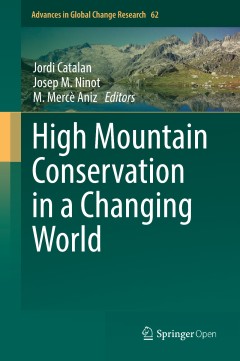
High mountain conservation in a changing world
This book aims to provide case studies and a general view of the main processes involved in the ecosystem shifts occurring in the high mountains, and to analyse the implications for nature conservation. Although case studies from the Pyrenees are preponderant, conclusions are aimed at any mountain range surrounded by highly populated lowland areas. The chapters give emphasis to approaches from …
- Edition
- -
- ISBN/ISSN
- 9783319559827
- Collation
- xiv, 413p. : ill.
- Series Title
- -
- Call Number
- 577.53 HIG h
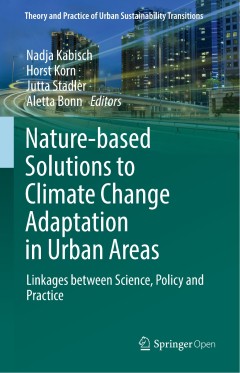
Nature-based solutions to climate change adaptation in urban areas : linkages…
This book brings together research findings and experiences from science, policy and practice to highlight and debate the importance of nature-based solutions to climate change adaptation in urban areas. Emphasis is given to the potential of nature-based approaches to create multiple-benefits for society. The expert contributions present recommendations for creating synergies between ongoing…
- Edition
- -
- ISBN/ISSN
- 9783319560915
- Collation
- xi, 342p. : ill.
- Series Title
- -
- Call Number
- 307.1216 NAT n
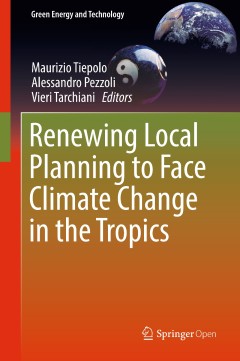
Renewing local planning to face climate change in the tropics
This book aims to inspire decision makers and practitioners to change their approach to climate planning in the tropics through the application of modern technologies for characterizing local climate and tracking vulnerability and risk, and using decision-making tools. Drawing on 16 case studies conducted mainly in the Caribbean, Central America, Western and Eastern Africa, and South East Asia …
- Edition
- -
- ISBN/ISSN
- 9783319590967
- Collation
- xvi, 372p. : ill.
- Series Title
- -
- Call Number
- 577.22 REN r
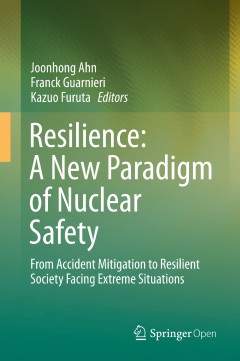
Resilience : a new paradigm of nuclear safety : from accident mitigation to r…
This book summarizes presentations and discussions from the two-day international workshop held at UC Berkeley in March 2015, and derives questions to be addressed in multi-disciplinary research toward a new paradigm of nuclear safety. The consequences of the Fukushima Daiichi nuclear accident in March 2011 have fuelled the debate on nuclear safety: while there were no casualties due to radiati…
- Edition
- -
- ISBN/ISSN
- 9783319587684
- Collation
- xvii, 356p. : ill.
- Series Title
- -
- Call Number
- 621.4835 RES r

Freshwater governance for the 21st century
The objective of this book is to broadly illustrate the key aspects of water governance, mapping the spectrum of decision-making from techno-centric and eco-centric approaches, to hybrid concepts and people-centric approaches. Topics covered include the challenges for water-governance models, the polycentric model, the integration challenge, water in the decision-making hierarchy, and the rise …
- Edition
- -
- ISBN/ISSN
- 9783319433509
- Collation
- xxvii, 250p. : ill.
- Series Title
- -
- Call Number
- 343.0924 FRE f
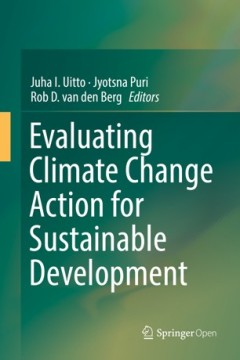
Evaluating climate change action for sustainable development
This authoritative book presents the ever progressing state of the art in evaluating climate change strategies and action. It builds upon a selection of relevant and practical papers and presentations given at the 2nd International Conference on Evaluating Climate Change and Development held in Washington DC in 2014 and includes perspectives from independent evaluations of the major internation…
- Edition
- -
- ISBN/ISSN
- 9783319437026
- Collation
- xxiv, 355p. : ill.
- Series Title
- -
- Call Number
- 363.73874 EVA e

Satellite Earth observations and their impact on society and policy
The result of a workshop bringing together an international advisory board of experts in science, satellite technologies, industry innovations, and public policy, this book addresses the current and future roles of satellite Earth observations in solving large-scale environmental problems. The book showcases the results of engaging distinct communities to enhance our ability to identify emergin…
- Edition
- -
- ISBN/ISSN
- 9789811037139
- Collation
- xxv, 221p. : ill.
- Series Title
- -
- Call Number
- 550.285 SAT s
 Computer Science, Information & General Works
Computer Science, Information & General Works  Philosophy & Psychology
Philosophy & Psychology  Religion
Religion  Social Sciences
Social Sciences  Language
Language  Pure Science
Pure Science  Applied Sciences
Applied Sciences  Art & Recreation
Art & Recreation  Literature
Literature  History & Geography
History & Geography